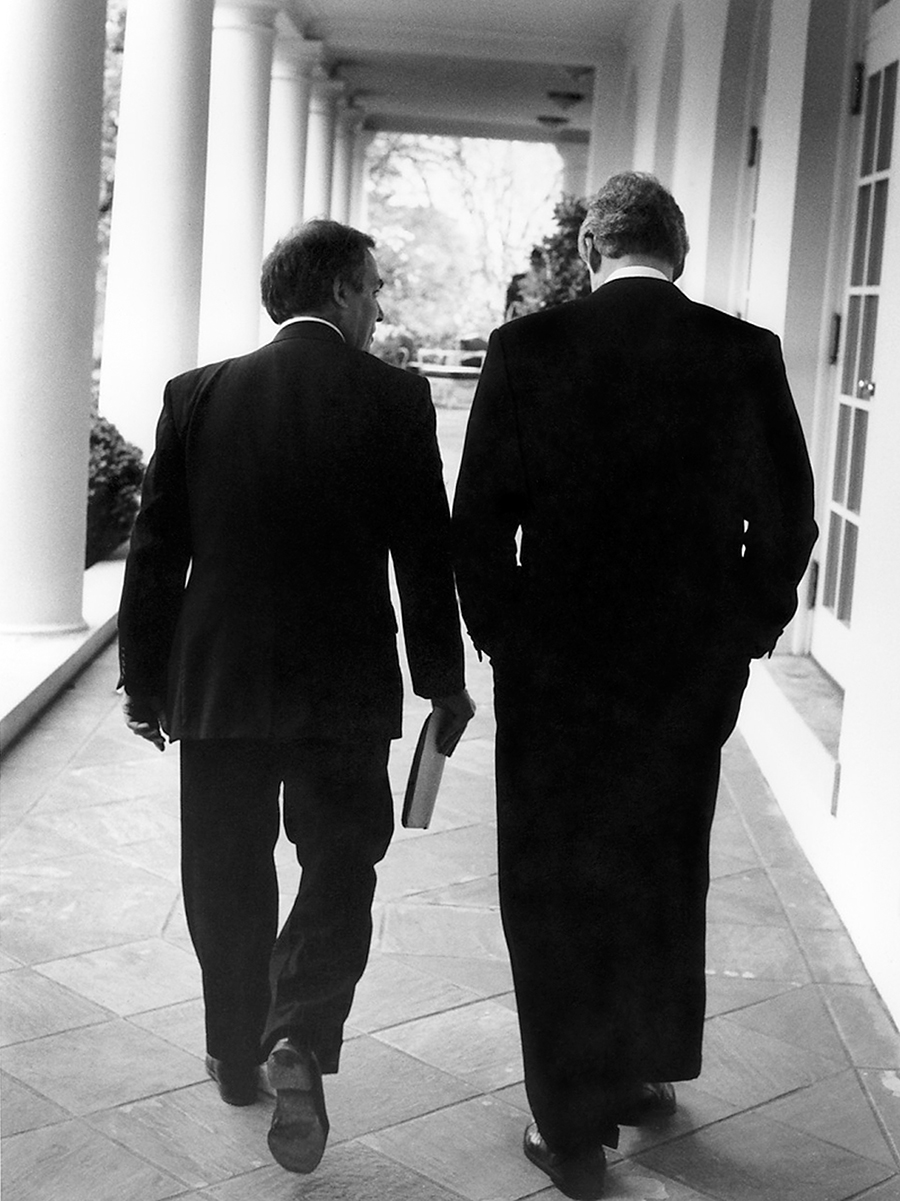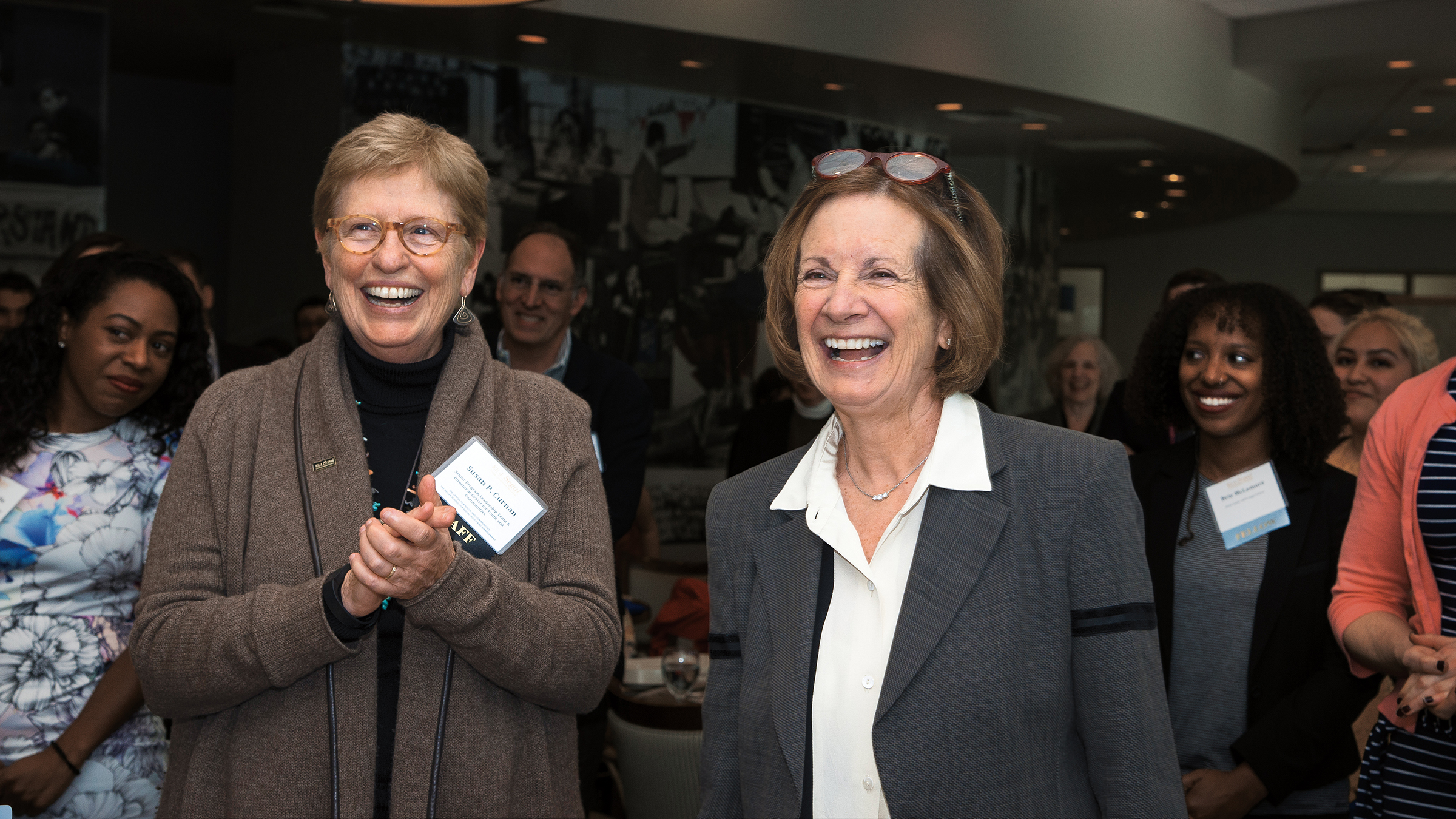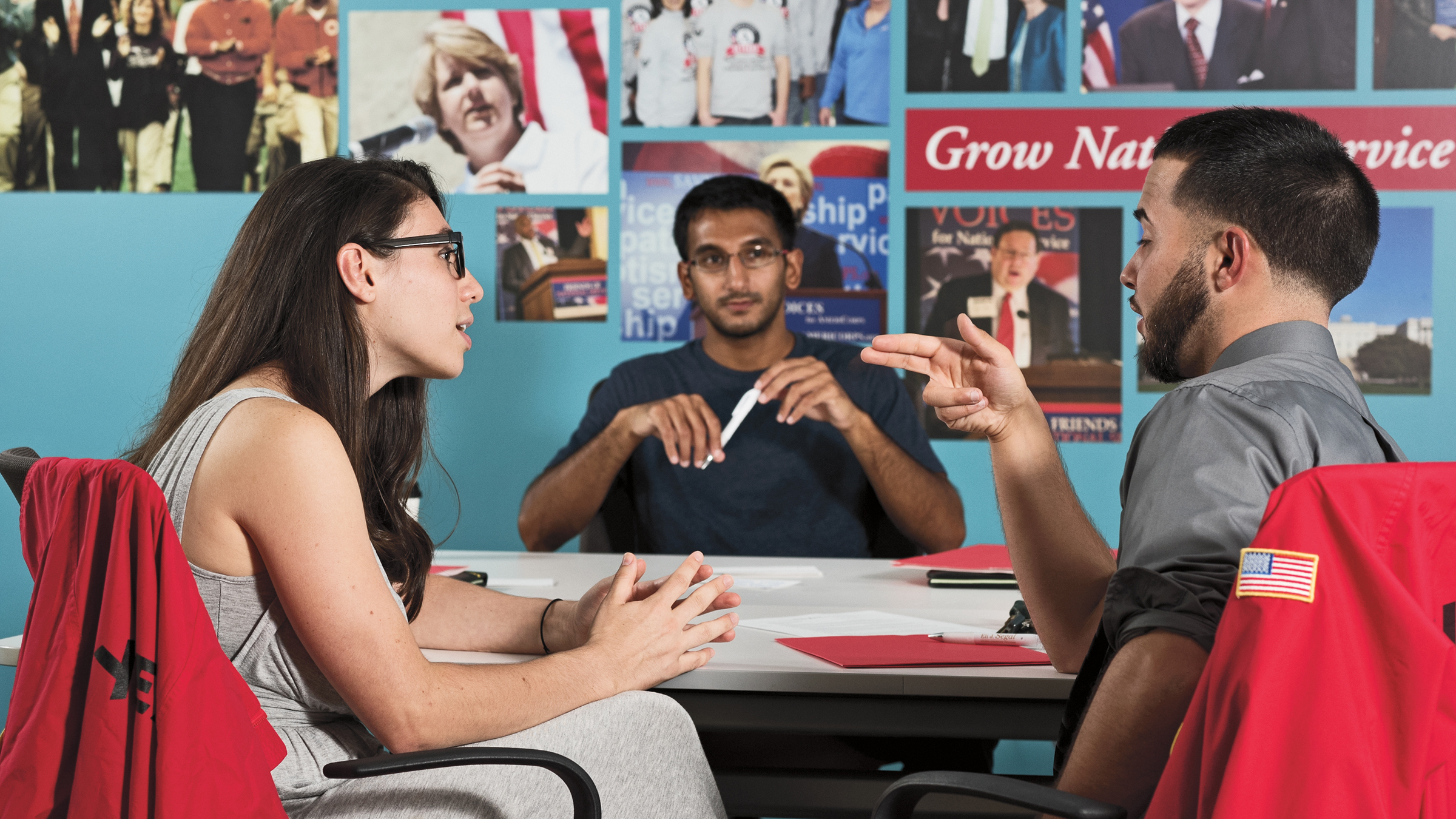By Sarah C. Baldwin

In the fall of 2008, Susan Curnan P’21 received a phone call from then-Provost Marty Krauss, PhD’81, asking if she would consider taking on the development and oversight of a new program at Heller’s Center for Youth and Communities (CYC), which Curnan had directed for 20-some years. The purpose of the program was to create future generations of “citizen leaders” committed to a lifetime of contributing to the common good.
“The CYC is all about preparing young people for college, work and life, with a big emphasis on civic life, so the mission match was perfect,” Curnan admits. But she was so busy with that program she was reluctant to take on more. Lisa Lynch, who had just arrived as dean of Heller, recalls, "I was convinced that we had to tap into the expertise of folks who knew how to bring students into the field and build networks of people engaged in community-based activities, and apply their knowledge to the creation of the Segal program. Susan's program was the obvious place to do that.” Lynch soon convinced her to take it on, so when the provost made that call, Curnan answered, “The question isn’t if, it’s when. How soon can you make this happen?”
The program was the brainchild of Phyllis Segal ’67 and a large network of friends and family. Her husband, Eli Segal ’64, had died the year before from mesothelioma. In addition to being a JD-carrying businessman, Segal had dedicated his life to social change and public service. He is perhaps best known for having served as chief of staff of Bill Clinton’s successful 1992 presidential campaign, and for crafting what are widely considered that administration’s greatest accomplishments: AmeriCorps and the Welfare to Work Partnership. He was also the founding CEO of the Corporation for National and Community Service.
To honor Eli’s legacy and his passion for citizen engagement, Phyllis, along with friends from across her and Eli’s lifetime—including their Brandeis days—conceived of a program that would create an ever-growing network of citizen leaders seeking solutions to society’s most pressing problems. The network would also include Founders—Segal family members and friends who would provide the Fellows with coaching and mentoring as well as access to meaningful work experiences in mission-driven private, nonprofit and public organizations.
For Phyllis, the question of where to plant the seeds was a no-brainer. Brandeis is where she and Eli met, where they demonstrated against the Vietnam War and for civil rights, and where they developed a community of lifelong friends. Lynch, who had served as chief economist at the U.S. Department of Labor in the ’90s, says she was an ardent supporter of bringing the program to Heller not only because of the quality of her colleagues, but for personal reasons as well. “I worked with Eli as he advanced Welfare to Work,” she says. “I watched how he pulled people together to make things happen.” Indeed, there is a Russian-doll neatness to the Segal program’s location within the Center for Youth and Communities, which in turn is housed at the Heller School, founded to advance careers committed to social change, which in turn is part of Brandeis, a university dedicated to social justice.
By December 2007, a celebration was planned and the Eli J. Segal Citizen Leadership Program was announced. The keynote speaker was former President Bill Clinton.

Special delivery
The day after Curnan’s call from the provost, a cardboard file box arrived at her door. “What’s this?” she asked. “It’s all you need to know about the Segal program,” was the answer. The contents of that box—the endowment agreement with the university, a memo about the management team, Phyllis’ articulated vision for the program—coupled with the energy and resolve of Curnan and Toni Burke, a Heller MPP’09 graduate whom she hired as a Management Fellow, and then Director, would soon turn into a roadmap for the program. “The Segal family is known for a lot of things, but they’re best known for turning ideas into action,” Burke recalls. “We wanted to do just that.” The challenge, she says, was to “create a program that would be sustainable and pragmatic and worthy of the ecosystem we were trying to build.”
Each year, the program welcomes approximately 10 new Fellows – six from Brandeis (undergraduates and Heller Master’s in Public Policy candidates) and one or more from each of the other four “streams:” AmeriCorps Alums, City Year, Service Year Alliance and the Corporation for National and Community Service. Each new Fellow is paired with a veteran Fellow and with a mentor from the Segal network. Brandeis Fellows begin with a summer internship in an organization that maps to their interests and attend workshops built around the program’s Citizen Leadership Curriculum. An annual retreat enables all Fellows to hone their leadership skills, build relationships and strengthen their sense of community. Other in-person and virtual program offerings allow Fellows to connect and grow in an ongoing manner beyond the retreats.
Today, the program receives far more applications than it can accommodate; indeed, it has become the most sought-after fellowship at Brandeis. It’s also a draw for applicants to Heller’s Master’s in Public Policy program, according to its director, Michael Doonan, PhD’02. “We wish we could have a Segal experience for all our students. The Segal program sets an example for what the highest level of experiential learning looks like.”
Unlike many service programs, central to Segal is the commitment to becoming a Fellow forever—by continuously striving to be the best citizen leader possible and by remaining actively engaged with the program. This means serving as a buddy to new Fellows, helping with recruitment efforts and participating in the monthly virtual “convenings” initiated by Susanna Flug-Silva, who became director in 2017.
The Segal program is also unique in its intergenerational, cross-sector nature—that is, the notion that citizen leaders can help each other from any point in their careers and from any sector or discipline, be it education, environment, government, business, criminal justice, tech, the arts or even ecotourism. According to Phyllis Segal, “What a leader does is enable others. It's not just what they accomplish themselves. You can lead for a better society from whatever perch you sit on.”

The next decade—and beyond
Ten years after its founding, the program has come a long way from that cardboard box. The network comprises 106 Fellows and 600 Founders and supporters, as well as an advisory board. (Phyllis and Eli’s daughter, Mora Segal, is the chair.) There are plans to expand programming in Washington, DC. And the program recently got a new name—one that includes Eli’s partner of 40 years. “Today the program runs like a business should, with its timelines and standard cadence,” says Burke. “But it still has Eli’s entrepreneurial spirit.”
This June, the Segal Program will celebrate its first 10 years of impact in Washington, D.C. with an event highlighting "The Impact of Together" for Fellows, founders, and friends. This anniversary celebration will raise awareness of and support for the program as Segal continues to grow and foster lifelong leaders into the future.
Flug-Silva thinks a lot about the challenges that come with such success. “We grow by 10 Fellows every year,” she says. “I want to create depth and meaning for everyone, whether you’ve been a fellow for one year or 10 or 20. And I want to expand and strengthen the partnerships for sustainability, so Fellows feel ownership of the program and founders feel engaged as well.” This sense of ownership is in keeping with Phyllis Segal’s original vision of a “self-perpetuating” program, one that “generates itself into the future.”
Tam Emerson, a City Year Fellow from the first cohort, a management Fellow at the CYC, and director of the program from 2014 until 2017, agrees, referring to the Segal network as her “brain trust.” “I’m ready to throw down the ladder for people coming after me,” she says, “and I will call on the network for the rest of my life.”
